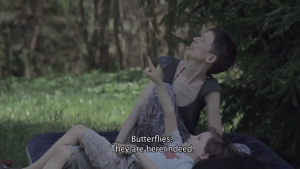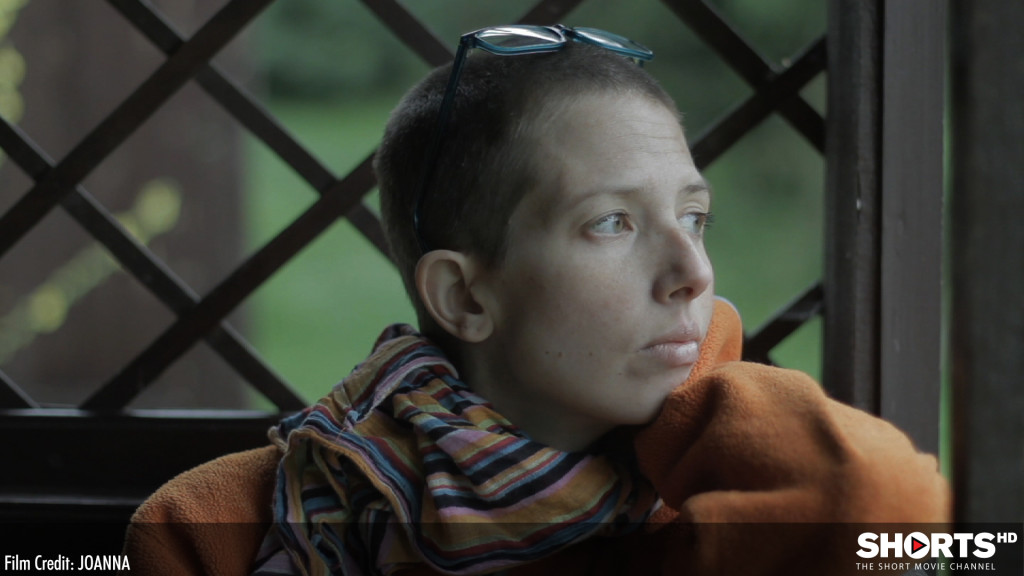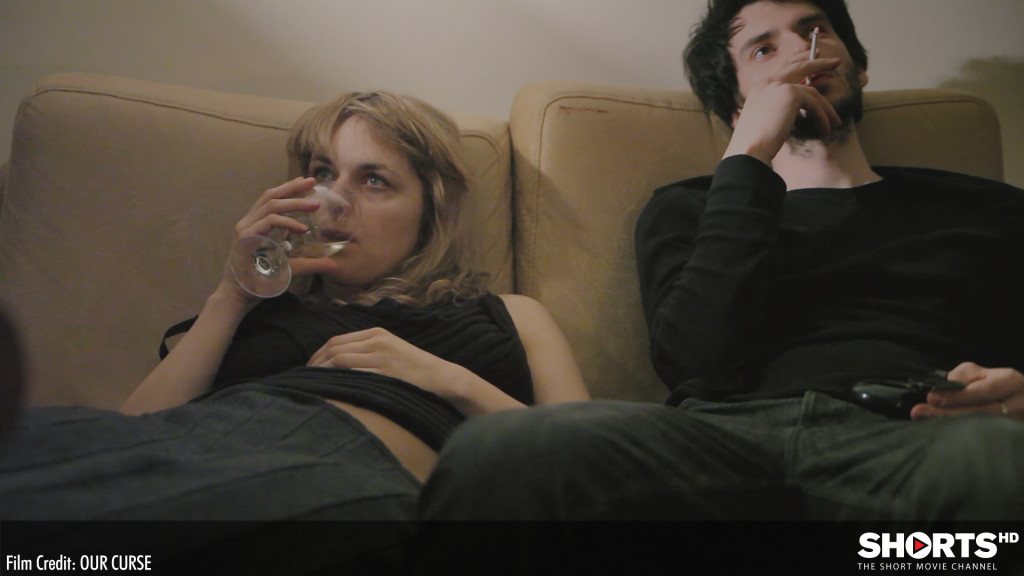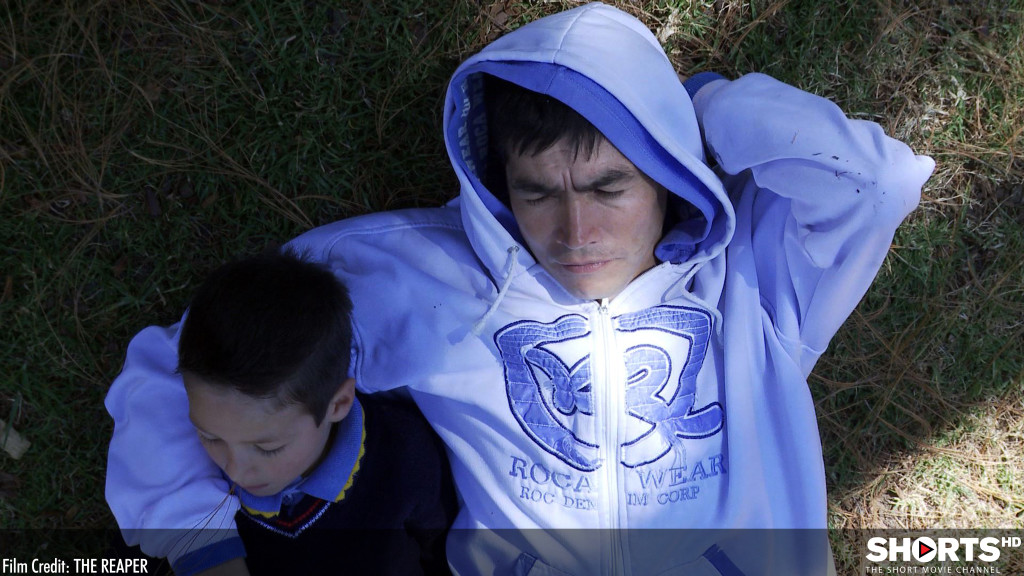
Oscar Shorts Week: Part Three of Three
2015 Academy Award Nominated Documentary Short Films
Sundance Cinemas Screening Room Calendar, January 30-February 12»
With topics like cancer, a baby’s illness, oil work in a desolate small town, work in a slaughterhouse, and suicidal veterans, this set of documentary nominees is not for the faint of heart. But they are affecting in their gravity and more stylistically notable than many recent feature documentaries.
This week the Madison Film Forum will look at each of the Academy Award nominated shorts programs that will play at Sundance Cinemas for a two-week run starting this Friday, January 30.
Tuesday: Taylor Hanley on the Animated Shorts
Today: James Kreul on the Live Action Shorts
Thursday: Jake Smith on the Documentary Shorts
Many years ago, I used to think of the short subject films as those whose winners I would get lucky at guessing in Oscar pools. Thanks to increased accessibility, it has become far easier over the years to see these films and to recognize them for the achievements they are. Sundance will be screening this year’s short documentary nominees in two programs: Joanna and Crisis Hotline: Veterans Press 1 will be one program, and the other three films below comprise the other. Regardless of which program you see—and particularly if you see both—know two things: 1) all of these films are quite well made and well worth watching, and 2) all five films are unified by their seriousness, with precious few moments of levity to buoy the viewer.
Joanna | Aneta Kopacz | Poland | 2013 | 40 min
Joanna is named for its principal subject, who begins the movie by having a charming conversation with her young son. Within the first few minutes, it becomes clear from visual cues that Joanna is suffering from some kind of cancer. What develops is a stirring portrait of a woman whose struggle is not so much against the cancer as it is for her family, for the ability to savor her time with them, and theirs with her.
I found Joanna to be an incredibly poignant and full portrait of this family. By virtue of its subject matter, the film presents astronomically high stakes, and in so doing turns what might be—to anyone else—everyday or mundane into something transcendently beautiful. Director Aneta Kopacz shapes this portrait using a muted but lovely aesthetic, austere and delicate. There are moments of humor and heartening charm, such as when her son says that he’s “having a divine time” while they’re enjoying the outdoors, or when he asks her to write about him, so that he can know what he’s like. There are also moments where Joanna experiences those little instances of irritation (like when her son can’t stop fidgeting), which lends the film a grounded quality that I very much appreciated.
Of all of the nominees in this category, this is my favorite, precisely because of the immense meditative perspective it provides, and because it is full of profundity whilst being bankrupt of pretension.
Crisis Hotline: Veterans Press 1 | Ellen Goosenberg Kent | USA | 40 min
Courtesy of HBO Documentary Films, this peek into the only Veterans Crisis Line Center is about as intense as a film can get. Every call presented in this film involves a veteran who is in danger of harming himself or others, or on the cusp of committing suicide. Crisis Hotline: Veterans Press 1 shows us the hard, noble work that 250 trained call center responders do on 22,000 calls per month.
Throughout the film, we only get the responder’s side of the conversation. It is all we need, and likely all we could handle. Through their normal conversational strategies, however, the responders convey enough information on camera to give us a very clear impression of the pain these veterans are going through. Also compelling are the venting conversations—those between the responders themselves and their supervisors or their peers—which serve as an extension of the therapeutic and rescue processes that the responders provide our men and women that have served in uniform.
From a stylistic point of view, I was impressed with the editing of this film, which created a nerve-wracking rhythm that complemented the tension of the responders’ conversations exceedingly well. Visually, Ellen Goosenberg Kent is wise not to imbue her film with a great deal of flourish, telling the story in a more head-on fashion. It is a story she tells truthfully and honorably. And while I walked away shaken by the plight of our veterans suffering the very darkest of thoughts, I also walked away heartened by the commitment of the responders, whose calm, engaged voices provide echoes of hope in the minds of our vets.
Our Curse | Tomasz Śliwiński | Poland | 2013 | 27 min
Unlike the initially oblique approach of revealing the Joanna‘s cancer, Our Curse pretty quickly presents the issue at stake with this family. Two young parents have just had a baby who was diagnosed with the incurable “Ondine’s Curse,” which on a practical level means that the baby has a tracheostomy and cannot go to sleep without being hooked up to a breathing machine. The film gives us a glimpse into the fears and worries of caring for a child with these concerns, and the fact that it is the director’s own child makes it an even more personal portrait.
There is an exchange that sums up the film quite well, in both its bleakness and its hope. Tomasz, after Magda expresses some of her fears about their baby being born with any medical issue at all, asks her, “Now that your fears have materialized?” With a reply that broke my heart and then filled it up again, she says, “I don’t have to be afraid of them anymore.”
I appreciated the fact that the film, as do the others, did not rely much on direct address to the camera. Instead, the camera captures what feel like very natural, very unstaged conversations. The “talking head” approach yields to a visual style that is as stark as the subject matter. There is an especially powerful long take at the center of the movie, where the baby’s breathing tube as to be changed. The audience may flinch; the camera does not. A couple of these films got me very choked up by the time they ended, and this one was no exception. With the strength of these parents (and their child) to perservere in the face of an incurable condition, and all the love they have between them, the end of this film brought not only tears but a giant smile as well.
The Reaper | Gabriel Serra Argüello | Mexico | 2013 | 29 min
Make no mistake: animals are harmed in the making of this film. For those of you who remember the opening scene of Michael Ritchie’s Prime Cut, that should give you some idea of what almost this entire movie is like.
The Reaper tells the story of Efraín, who works in a slaughterhouse to support his family. Within the space of half an hour, we essentially see a day in Efraín’s work life, and a little bit of his family life as well. Nicknamed “the Reaper” by his co-workers, we see Efraín do his job—and do it well. All the while, his voiceover provides us with a fair amount of introspection, as we come to learn the seriousness with which he takes his job, as well as how he came to it in the first place. We are left with a perspective that has emotional dissonance yet existential coherence.
The cinematography here is outstanding, despite the graphic visuals. The shots of the slaughterhouse at rest, before the employees show up to begin the day, are wonderfully composed. The film also maintains an almost metronomic editing rhythm that adds to the disturbing atmosphere. If I have a complaint at all (besides the unsavory content), it would be that it would have been an even stronger film if it had ended just a couple of minutes earlier. I won’t spoil it by saying why; you’ll have to see for yourself.
White Earth | J. Christian Jensen | USA | 2014 | 20 min
White Earth gets its title from the name of a town in North Dakota, where a recent oil boom has created an onslaught of people looking for blue-collar jobs in the oil field. The film bears some similarity to The Reaper, in that it too is about what workers will do to make money and provide for their families. Instead of being told through the eyes of the workers, however, it is told through the eyes of their family members. With the exception of a wife of one of the workers, we see this town through the eyes of children.
Of all of the films, this was the only one that left me wanting in any way. I liked the film quite a bit, but it also feels somewhat like prelude to a feature-length documentary on the subject. If that were to come to pass, that would be good news in my opinion, for there are a number of political and humanistic issues (environmental/energy policy, the economy, immigration, education). In giving us a glimpse at this town, director J. Christian Jensen provides some gorgeous cinematography that juxtaposes the beauty of nature with the brutality of the machinery. More than that, though, he prioritizes the simplicity and, in many ways, practicality of the children’s points of view.
And the winner is…
you, the audience member, for giving these films your time. It is, as I mentioned earlier, time well spent. If you’re looking to win your office Oscar pool, though, I don’t have a solid prediction. Despite the fact that Joanna is my favorite, I feel like Crisis Hotline is going to end up taking the trophy on Oscar night. We’ll find out on February 22. Until then, in the midst of your catch-up with other feature nominees, don’t let the short films pass you by.




